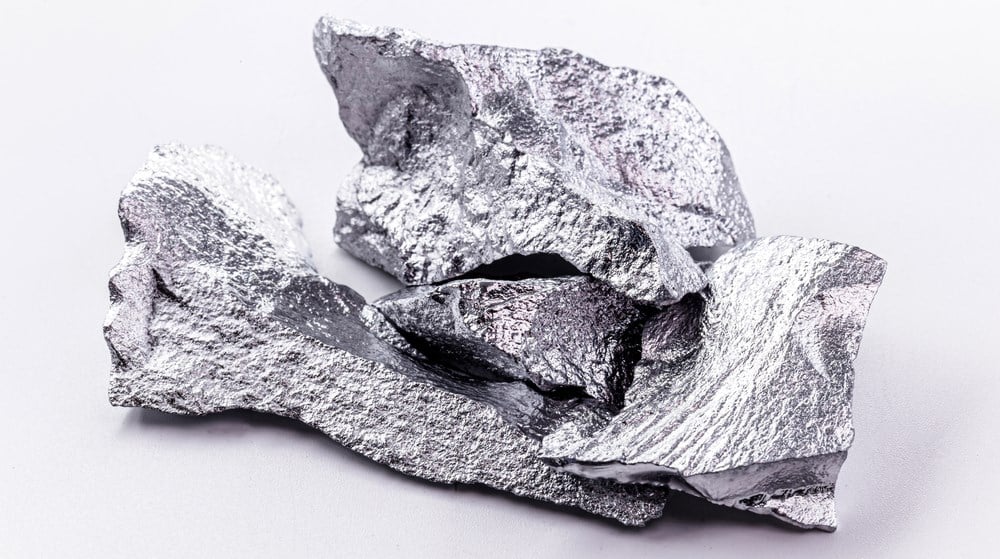This once-in-a-cycle deal will build your wealth like no other
Daqo New Energy could be the industry’s last hope at landing a peace treaty between the United States and China’s technology conflict, analysts are all over it
This story originally appeared on MarketBeat

The world of commodity stocks is ruled by one of the strongest fundamental laws in all of financial markets, and that is the undeniable force of an underlying business and pricing cycle, one that can throw business valuations and expectations from one end of a spectrum to the next in a moment’s notice.
Today, there is one cycle affecting industries from technology to manufacturing. And, at this point, the lowest-cost producer seems to be the only one still making a buck from the severe declines in the price of polysilicon.
Daqo New Energy (NYSE: DQ) is an underrated and under-covered Chinese firm making its money from manufacturing polysilicon, which is the primary material used in the creation of solar panels, and in a swift move to expand, it will begin to be adopted by the semiconductor industry as well.
Hang onto your chair
Daqo stock is hovering near its 52-week low price, which may not reflect how valuable this business is. The truth is that analysts and other investors are scared of investing in Chinese equities. Still, as Ray Dalio and Warren Buffett have proven time and time again, it pays to be an outsider.
Chinese President Xi is in San Francisco this week, opening a can of worms for investors to scratch their heads about the agenda. Well, it is his first visit to the United States in more than ten years and the first time Xi and Biden met since last year, so it better be important.
Within these talks, the state of the Chinese economy will be addressed, especially the escalating effects of technology curbs on the industry. While this may blow past most investors’ heads, you are not most investors; you are here for the juicy insights and check, mate.
Considering that companies like Intel (NASDAQ: INTC) have begun their geopolitical diversification away from Taiwan, where Taiwan Semiconductor Manufacturing (NYSE: TSM) has been ruling the global chip and semiconductor supply, there is an added interest in China that may stop this trend on its tracks.
This has led to a major division in the industry, as most companies now see the writing on the wall: You either ditch Taiwan and China to back the U.S. and its ambitions to remain at the top of the semiconductors environment, or you ditch the U.S. to support China’s ambitions to overtake the king.
In this dynamic conflict and division, the two governments rightfully realized that keeping on this path would only create further friction and place a ceiling on global markets, namely those reliant on chips and semiconductors. This is where the San Francisco summit comes into play and where Daqo can be the peace broker.
Upside on the table
Despite experiencing a decline of up to 70% in the average selling price of polysilicon made at Daqo, the firm could still pump out a tremendous ROIC (return on invested capital) rate of 22.0% over the past twelve months. This shows that the company’s low-cost and high-technology structure makes it a clear industry-leader.
Why is this important? Well, semiconductors just happen to also require polysilicon in their production. By standing in the way of profit margins, the conflicts between the United States and China, namely export curbs, could see a solution.
Everyone wins by allowing Daqo to become the leading supplier of raw materials. At the same time, the United States (Intel) takes care of the production. China gets its economy kickstarted while the United States keeps its place in the technology hierarchy.
If the decline in polysilicon prices in the open market was really an impediment to doing business, then Daqo would be taking a step back in its expansion plans, but that’s not the case today.
According to the latest reports, volume rose by 22.7% in the past year, aided by production capacity expansion to 205 thousand tons annually. The expecation of further demand is larger than any short-term contraction in the commodity price.
By getting in at the absolute bottom of the cycle, you could expose yourself to the one firm the world will look to carry the weight of the growing solar energy industry and the semiconductor markets. Besides, analysts are already all over this stock, rewarding it with all the love it deserves.
With a consensus price target of $46.4 a share, revenue, and profit projections assume that today’s depressed polysilicon market and export curbs will stay forever. Nonetheless, this still implies a net upside of 60.0% from today’s prices, what could be considered the ‘worst case’ scenario.

The world of commodity stocks is ruled by one of the strongest fundamental laws in all of financial markets, and that is the undeniable force of an underlying business and pricing cycle, one that can throw business valuations and expectations from one end of a spectrum to the next in a moment’s notice.
Today, there is one cycle affecting industries from technology to manufacturing. And, at this point, the lowest-cost producer seems to be the only one still making a buck from the severe declines in the price of polysilicon.





